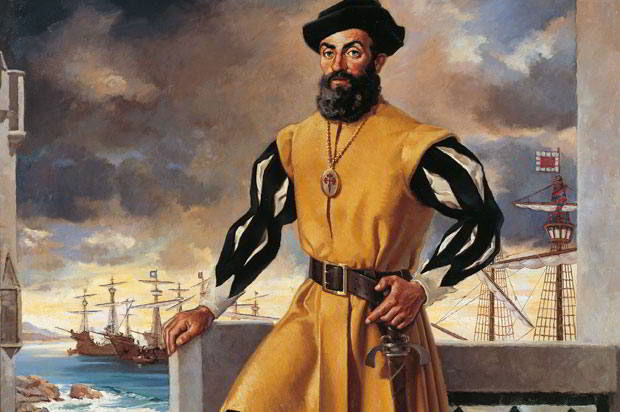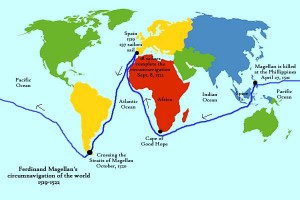
The explorer Ferdinand Magellan started the Spanish colonial experiment here. He was born in Sabrosa, Portugal in around 1480 and died in Mactan on April 27, 1521.
In a few years’ time, on 2021 to be precise, we will be celebrating the fifth centenary of the “discovery” of the Philippines. Why the word discovery is in quotations is because it is still a contentious issue for some.
From the point of view of imperialists, it signifies the triumph of European power and their act of “civilizing” the Filipinos.
On the other hand, it conjures the idea of the defeat of the natives—our forefathers, and their eventual bondage under Spanish yoke for more than three centuries until their exit in 1898.
The explorer
For all this clash of opinion, there is one person who is at the center of the controversy —the explorer Ferdinand Magellan.
The name once again came to the fore recently when the Cebu City government expressed interest to establish sisterhood ties with Magellan’s birthplace in Sabrosa, a municipality with a population of 6,835 in northern Portugal.
Perhaps from the point-of-view of our officials, the act would help connect Cebu City with the place where Magellan was born and with the place where prior to his death, he visited and made a pact with Humabon, then the local chief.
Had Magellan succeeded in his colonial experiment, we won’t be commemorating each year the victory of Lapu-Lapu and his men. Had it not been for his early demise, Cebu and the entire Philippines would have had a slightly different colonial beginning and that there would probably be no vacuum of 44 years before the archipelago’s eventual colonization in 1565 by Miguel Lopez de Legaspi.
What “discovery?”
For the imperialists, the arrival of the Spaniards is in itself a victory and that is why they claim it as a “discovery.” This particular European exploit was a landmark since it didn’t just disprove the Old World notion that the earth was flat but it also paved the way for the race to colonize every land hitherto undiscovered or uncolonized. Thus, this event set the motion for European colonists to expand their territory beyond their country and further beyond what has been previously claimed by them, especially in the Americas.
Anti-imperialists on the other hand, point out that there was no discovery at all. In the first place, they claim, the word “discovery” itself is a misnomer. How do you discover a place previously visited by other nationalities? The Chinese and the Arabs, had been here before the Europeans. Still some would even point out that this is a case of who-discovered-what since it is impossible to discover lands where there are already communities of people living thereat.
They further argue that there was no need for us to be “civilized” because though we didn’t possess their (European) kind of culture but we already had our own civilization.
But all the same, discovery or not, the land where no Europeans had ever set foot or claimed as territory, was land to be owned.
To celebrate or not
Back to the possible sisterhood pact, while some Europeans, particularly the Spaniards and Portuguese would view this as an acknowledgment of their conqueror-ancestors’ victory and superiority over the natives, Filipino nationalists, on the other hand, might not be in favor of the idea at all since, for them, this is like opening a can of worms. Why do we have to remember the event which led us to be placed under Spanish yoke? Or why do we have to celebrate his memory when he was an agent of imperialist oppression?
The colonization and bondage of the Philippines was indeed a sad event in our history but that is not something which we should hold on to. The arrival of the first Spanish expedition led by Magellan had imperialist motivation and may have been a prelude to a grand colonization scheme but that is something that is beyond our control today. It already happened. It has been recorded in the annals of our history.
For all its worth, we at present, should acknowledge the pain of colonization that our ancestors experienced but we should not also forget that our colonial experience too helped mold us to be what we are today.
Yes, some Spaniards treated us badly but if we look at our history closely beyond Rizal’s biased portrayal of our conquerors, they also left us many good things which we have failed to consider.
Pastilan gyud nis Magellan!
Disclaimer: The comments uploaded on this site do not necessarily represent or reflect the views of management and owner of Cebudailynews. We reserve the right to exclude comments that we deem to be inconsistent with our editorial standards.

